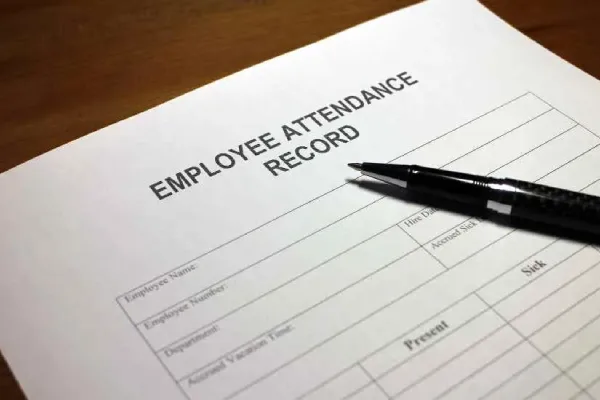Global business expansion is no longer a luxury—it’s a strategic move. As companies eye international markets to access new talent pools and revenue streams, the operational challenge often begins with a simple question: How do we hire talent in a new country without legal complications?
Two prominent solutions emerge in this space: Employer of Record (EOR) and Professional Employer Organization (PEO). While both serve as workforce management partners, the difference lies in their legal responsibilities, operational scope, and strategic use cases.
Let’s dive deeper into these models with a focused lens on the growing Middle Eastern hub—Saudi Arabia.
What is an Employer of Record (EOR)?
An Employer of Record is a third-party service provider that legally employs workers on behalf of a company. It takes full legal responsibility for the employees, allowing businesses to operate in a country without establishing a local entity.
Key Functions of an EOR:
- Manages employment contracts in compliance with local labor laws
- Oversees payroll processing and tax withholdings
- Handles statutory benefits, social security, and end-of-service benefits
- Ensures legal compliance with labor authorities and government regulations
EOR is Ideal for:
- Rapid market entry
- Short-term or project-based hiring
- Testing the viability of a new region before full investment
What is a Professional Employer Organization (PEO)?
A Professional Employer Organization offers co-employment services, where the PEO and client company share employer responsibilities. However, unlike an EOR, a PEO model requires the business to have a legal entity in the operating country.
Key Services Provided by a PEO:
- Co-manages employees’ HR administration
- Provides access to group insurance and employee benefits
- Assists with payroll, taxation, and regulatory compliance
- Supports employee onboarding and performance management
PEO is ideal for:
- Businesses already registered in the country
- Companies scaling operations and requiring HR efficiency
- Organizations seeking cost-effective employee benefits solutions
Employer of Record vs PEO: A Strategic Comparison
| Feature | Employer of Record (EOR) | Professional Employer Organization (PEO) |
| Legal Employer | EOR is the legal employer. It takes full responsibility for compliance and taxation. | Legal responsibility is shared. The client manages daily work, while the PEO handles HR and admin tasks. |
| Requires Legal Entity | No legal entity is needed. The EOR provides a legal framework for hiring. | Yes, a registered local entity is required. |
| Speed of Market Entry | Entry is fast. Employees can be onboarded within a few days. | Slower process. Company registration must be completed first. |
| Payroll and Tax Administration | EOR handles payroll, local tax filing, and deductions end-to-end. | Payroll may be co-managed. The client oversees legal reporting. |
| Visa & Work Permit Processing | EOR handles visa sponsorship and all government formalities. | PEO offers assistance, but the client must manage sponsorships. |
| Employee Benefits Management | EOR ensures all mandatory and optional benefits are managed. | PEO facilitates benefits through group schemes or vendor partners. |
| Control Over Day-to-Day Work | You manage the employee’s tasks, performance, and daily reporting. | Same structure. You retain operational control while PEO handles admin. |
| Compliance Responsibility | EOR assumes full legal liability for compliance and labor issues. | Compliance is shared. The client bears the final legal responsibility. |
| Cost Structure | Higher cost per employee due to full legal and admin services. | Lower overall cost if you already have a local HR framework. |
| Use Case Scenarios | Ideal for market testing, short-term hiring, or international expansion. | Best for established entities seeking outsourced HR and payroll support. |
Understanding these differences helps businesses choose wisely—especially in markets like Saudi Arabia, where regulatory compliance is critical for sustainable operations.
Why It Matters in Saudi Arabia
Saudi Arabia isn’t just making headlines—it’s turning numbers into milestones. In 2024, the Kingdom attracted over $32 billion in foreign direct investment (FDI), reflecting a 20% increase from the previous year. It’s more than just a boost; it’s a bold step toward the Vision 2030 goal of making non-oil revenue 50% of GDP.
Alongside that, over 600,000 new jobs have already been created, and 13,000+ foreign companies have entered the Saudi market. Riyadh is setting its sights high, aiming to host 500 multinational headquarters by 2030.
Saudi Arabia enforces strict employment compliance. Fines for labor or Saudization violations can exceed SAR 100,000, and non-compliance may lead to license suspensions or hiring delays.
If you’re planning to enter the Saudi market, numbers tell you it’s worth it. But choosing the right path—EOR or PEO—will determine how efficiently and compliantly you get there.
Challenges of Hiring in Saudi Arabia:
- Complex labor laws governed by the Ministry of Human Resources and Social Development (MHRSD)
- Saudization (Nitaqat) policies that mandate local hiring quotas
- GOSI registration and end-of-service benefits compliance
- Requirements for Iqama sponsorships and employment visas
How EOR Adds Value in Saudi Arabia:
- No need to establish a legal entity, saving time and setup costs
- Quick hiring turnaround, especially for project-based or niche talent
- Full compliance with labor regulations, Saudization policies, and visa processing
How PEO Supports Local Operations:
- HR support services for businesses already established in the Kingdom
- Localized knowledge of benefits administration and payroll standards
- Cost savings through bundled HR services
Real-World Scenario
Let’s say you’re a fintech startup based in Germany looking to tap into the Middle East market. You identify a skilled software architect based in Riyadh who aligns with your growth strategy.
- With an EOR, you can hire this talent within a week, without establishing a Saudi subsidiary.
- With a PEO, you’d first need to complete the complex process of registering your business locally.
This example highlights the agility an EOR provides in new markets.
When to Choose EOR or PEO?
Choose EOR if:
- You’re expanding into a country without a legal entity
- You need fast access to international talent
- You’re piloting operations before full market commitment
Choose PEO if:
- You have an established presence in the region
- You want to offload HR and compliance operations
- You seek to improve employee retention through better benefits
FAQs
- Do I need a local company setup to use an EOR in Saudi Arabia?
No. That’s the biggest advantage of EOR services—you can hire employees without opening a legal entity.
- Is Saudization applicable when hiring through an EOR?
Yes. A compliant EOR will ensure you meet all Saudization (Nitaqat) requirements relevant to your industry.
- Can I switch from EOR to PEO if I open a local entity later?
Yes, transitioning from EOR to PEO or to your own entity is common as your operations grow.
- How fast can I hire using an EOR in Saudi Arabia?
Typically within 1–2 weeks, depending on documentation and visa requirements.
- Are EOR and PEO models suitable for long-term hiring?
Yes. Many companies use these models for both short-term agility and long-term expansion.
Looking Ahead: Making the Right Choice for Saudi Arabia
As Saudi Arabia continues to grow as a global business destination, companies need to think strategically about how they enter and operate in the region. Whether you’re testing the waters or scaling operations, choosing the right employment model—EOR or PEO—can significantly affect your compliance, costs, and speed.
For many businesses, partnering with a local service provider familiar with Saudi regulations can make a meaningful difference. Connect Resources, for example, has supported over 300+ companies in expanding across Saudi Arabia—handling everything from onboarding to local compliance. A knowledgeable partner doesn’t just reduce risk; it can accelerate growth while ensuring every move is in line with Saudi law.
The goal isn’t just market entry—it’s building long-term stability with the right structures in place. Choose wisely, stay compliant, and grow confidently.







 =Hi
=Hi